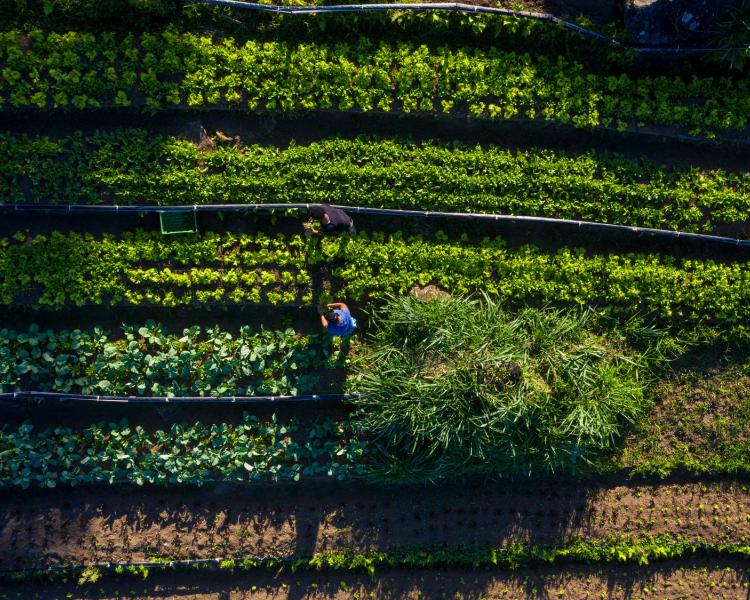
Theology & Integral Ecology Conference 2025
Key Details
We are delighted to announce a major international conference to take place on 24-25 April 2025 at the University of Oxford: Theology and Integral Ecology: New Approaches to our Planetary Crisis.
The conference will address questions at the intersection of theology and integral ecology, exploring the interconnectedness of the social, cultural, economic, political, and scientific aspects of our current global situation.
In recent years, the term “integral ecology” has gained prominence across various disciplines as a framework for understanding the complex relationships between human and natural systems. The term was prominently employed in Pope Francis’ 2015 encyclical Laudato Si’ where it was intended to galvanise action within Catholic contexts, but also amongst other religious denominations and in civil society more broadly. Ten years on, the moment is right for fresh evaluations and further deepening of the theological engagement with integral ecology.
Why theology and integral ecology? Find out more about the "story" behind this conference:
-
The context: what is integral ecology?
The term “integral ecology” was coined in the 1950s. It arose in the context of the natural sciences as a way of describing the inter-relatedness of different components of the earth system.
In recent years, the term has spread to the social sciences and humanities, including disciplines like geography, anthropology, law, political science and IR. In all cases, integral ecology describes a holistic approach to research that embraces the inter-connectedness of human and natural systems, and that sees connections between cultural, economic, political and environmental challenges.
Theology too has embraced integral ecology. The term was taken up by liberation theologians as part of their concern to address connections between poverty and environmental degradation. It was in the latter part of the 20th century, however, that the term came to greater prominence in theology through its deployment in Catholic magisterial teaching. Building on previous formulations of “human ecology” (John Paul II) and “integral human development” (Benedict XVI), the term “integral ecology” began to be used more systematically in the social encyclicals of Pope Francis, especially his 2015 Laudato Si’. Francis’ advocacy for the term intended to galvanise action within Catholic contexts, but also amongst other religious denominations and in civil society more broadly.
-
The encounter: theology and integral ecology
And yet Pope Francis did not set out a full philosophical-theological justification for his deployment of the term integral ecology. In Laudato Si’, for example, although the term is central, he refers merely to “the rich contribution which religions can make towards an integral ecology and the full development of humanity” (LS, 62).
Laudato Si’ was published in 2015. At this ten-year anniversary, then, we believe the moment is right for a fresh consideration of the encounter between theology and integral ecology.
By considering the idea of theology and integral ecology, we can address understandings of our contemporary planetary crisis, both from a theological standpoint and in terms of connections with other disciplines.
-
The outcome: a new programme for theology
The encounter between theology and integral ecology is significant in at least two ways.
First, it is significant for theology itself. In this conference, we will explore the potential contribution of Christian theological ideas to integral ecology, including creation, anthropology, incarnation and eschatology. This prompts a programme for work in philosophical and doctrinal theology. The first day of our conference will be allocated to explore this dimension.
Second, it provides a platform for interdisciplinary engagements. Via the integral ecology paradigm, theology has the prospect of working with other disciplines that are using the same approach to their research. What synergies can be found? And how might theology work with other disciplines in providing a more holistic understanding of our contemporary planetary crisis and its various inter-related aspects? Groups at the University of Oxford and further afield have been exploring this conversation in recent years. The second day of our conference will be allocated to explore this dimension.
Taking place over two days, 24-25 April 2025, the conference will feature a diverse programme addressing both theoretical and practical aspects of integral ecology, as relevant to the discipline of theology and beyond.
It will primarily be of interest to scholars in theology, religious studies, philosophy and ethics who are working on questions around nature, culture and politics. But as an interdisciplinary approach, integral ecology also opens out to broad engagements with the social and natural sciences, and with other disciplinary fields in the humanities such as philosophy, history, literary studies and the environmental humanities.
Click below to register for the conference or to submit a paper. Or find out more about our speakers:

Theology and Integral Ecology Conference: Registration
How to register for this conference

Theology and Integral Ecology Conference: Call for Papers
An invitation to submit papers at the conference

Theology and Integral Ecology Conference: Speakers
Biographical description of our keynote speakers
-
Conference registration fees
Conference registration fees will be as follows:
£75 (full conference)
£50 (single day)
£35 (full conference student / religious rate)
The registration fee includes conference participation, refreshments and lunch; you can chose to attend one or both days. Students, ordained religious ministers of all denominations, members of religious orders, and workers for charitable organisations are eligible for the discounted £35 rate (this will cover both days).


